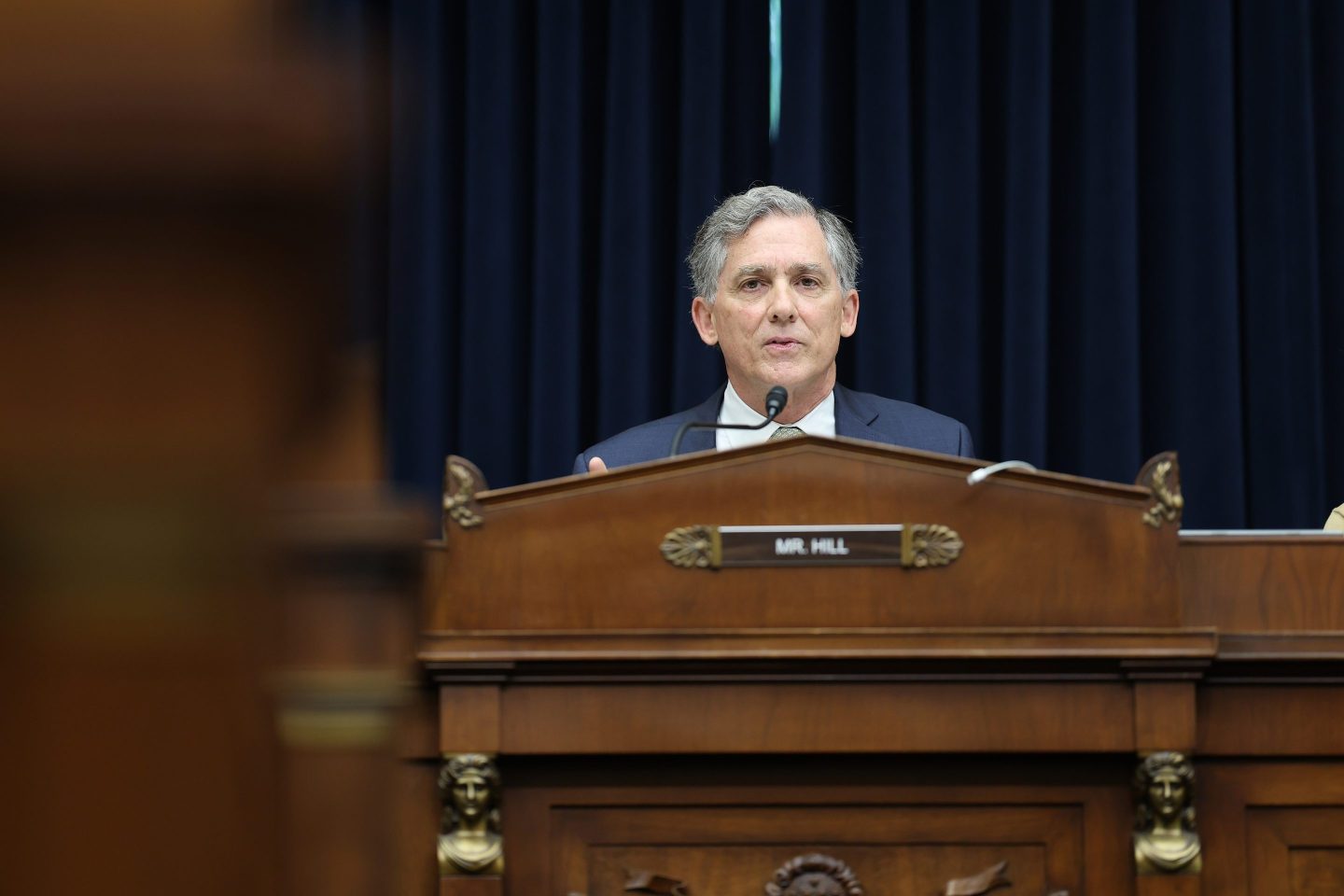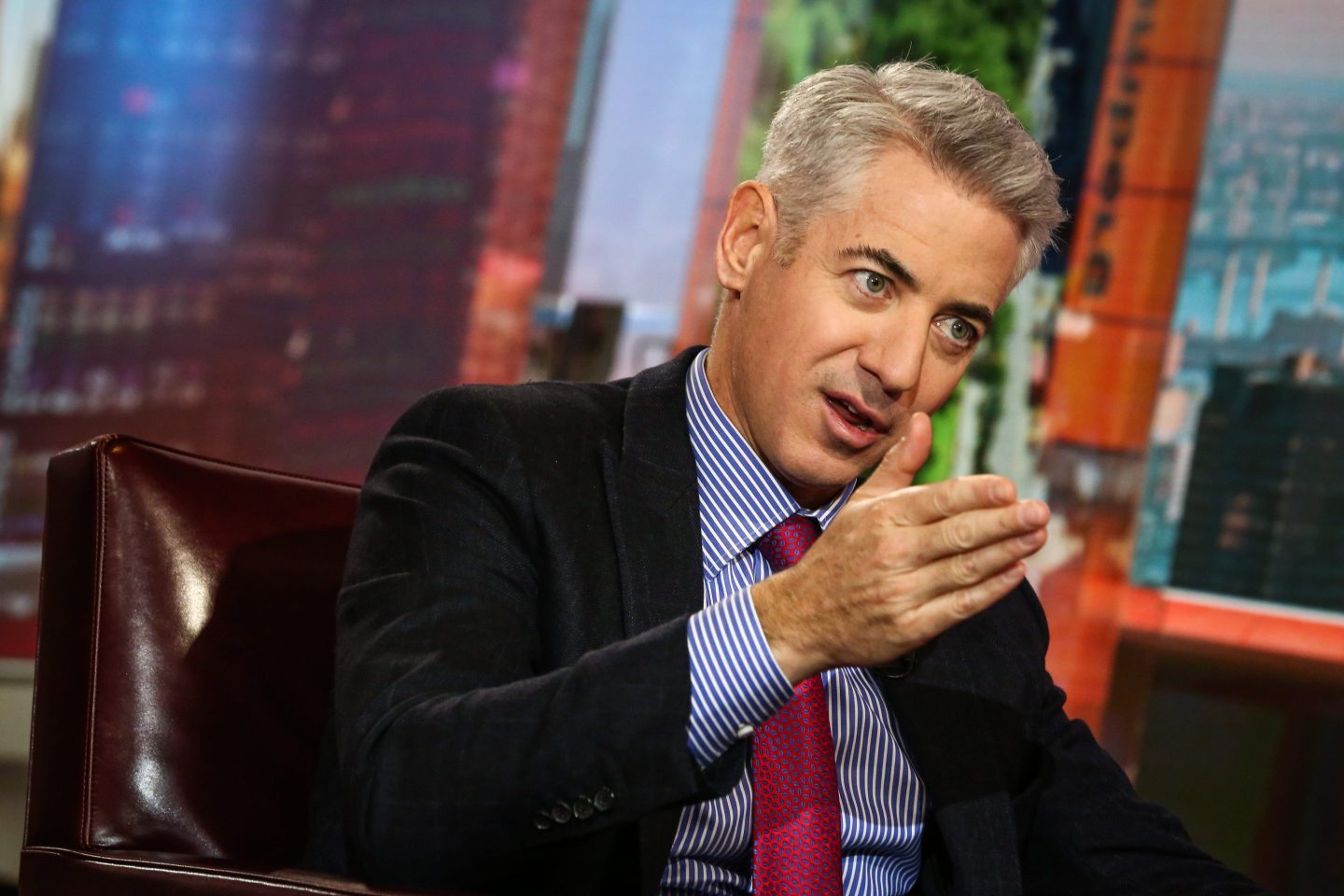Last July was a watershed moment for the crypto industry in D.C., as the House Financial Services Committee advanced two pieces of legislation—a stablecoin bill and a market structure bill—promising a full floor vote to come. Instead, politics got in the way, with the campaign of a renegade group of Republican representatives pushing for a new speaker, along with a slew of spending bills and global crises, delaying the historic ballot for almost a year.
That is set to change next week when the full House plans to vote on the market structure bill, known as FIT21, which now counts House Financial Services Committee Chair Patrick McHenry (R-N.C.) as a cosponsor and includes a number of new provisions, including specifications for when a cryptocurrency should be treated as a security. Yesterday, I caught up with Rep. French Hill (R-Ark.)—the chair of the subcommittee on digital assets and a candidate to take over the full committee when McHenry retires this year—to find out whether FIT21 has any chance of becoming a law.
The House already has a strong base of crypto-sympathetic representatives, including Ritchie Torres (D-N.Y.), who have voted in favor of a number of bills, including a recent one to repeal an unpopular SEC guidance that will likely go before the Senate today or tomorrow. The Senate is a different matter, with stalwarts including Elizabeth Warren (D-Mass.) and Sherrod Brown (D-Ohio) staking a firm position against digital assets. So while FIT21 will likely make it out of the House, it will face a roadblock in the upper chamber.
“I don’t think we take any legislative strategy off the table,” Hill told me, arguing that FIT21 could become part of other authorizing bills that come to Congress, like the farm bill, the National Defense Authorization Act, or spending bills during the lame-duck session after the elections in November. While the Senate has done more recent work on stablecoin legislation, Hill said that FIT21 more adequately addresses how financial regulators should treat crypto. “I think this could all come together in an effective way,” he told Fortune.
Despite the optimism, any ambitious bill not targeting TikTok faces steep odds of passing both chambers. Even with bipartisan excitement over a recent stablecoin agreement in the Senate last month, talks fizzled, and McHenry and House Financial Services Committee ranking member Rep. Maxine Waters (D-Calif.) have yet to reach an accord in the House, which is why only FIT21 is being advanced of the two bills that were voted out of committee last July. While a successful floor vote next week—Hill said likely Wednesday or Thursday—will be a symbolic victory, it is unlikely to lead to actual legislation.
Instead, crypto is increasingly becoming a partisan flashpoint, with former President Donald Trump announcing his embrace of the sector at an event last week. Hill said that he was not surprised to see the move. “President Trump is an able politician,” Hill told me. “When certain members of the other political party say they’re against it, then sometimes you’ll find him, having done his homework, stake out a position in opposition.”
“I think it’s an important place for Republicans to be on the right side of history,” Hill added.
Leo Schwartz
[email protected]
@leomschwartz
DECENTRALIZED NEWS
In the wake of the Silicon Valley Bank failure last year, one banking regulator is working with a blockchain intelligence firm to monitor social media risk. (Fortune)
The asset manager giant Vanguard named the former leader of BlackRock's ETFs as its new CEO, hinting at a potential thawing toward crypto. (Wall Street Journal)
Lido and Paradigm have secretly been funding a restaking company that would challenge EigenLayer. (CoinDesk)
Wisconsin's state investment board, which manages investments for public retirement and other trust funds, revealed a $163 million stake in spot Bitcoin ETFs. (The Block)
Peter Thiel's venture capital firm Founders Fund led an investment in the crypto-based prediction platform Polymarket. (Bloomberg)
MEME O’ THE MOMENT
What does Roaring Kitty's return mean for crypto?

This is the web version of Fortune Crypto, a daily newsletter on the coins, companies, and people shaping the world of crypto. Sign up for free.













